Bio-degradable cards
Every card imaginable!
|
Bio-degradable cards Every card imaginable! Endometriosis Symptoms and Treatment and How to Live Well with It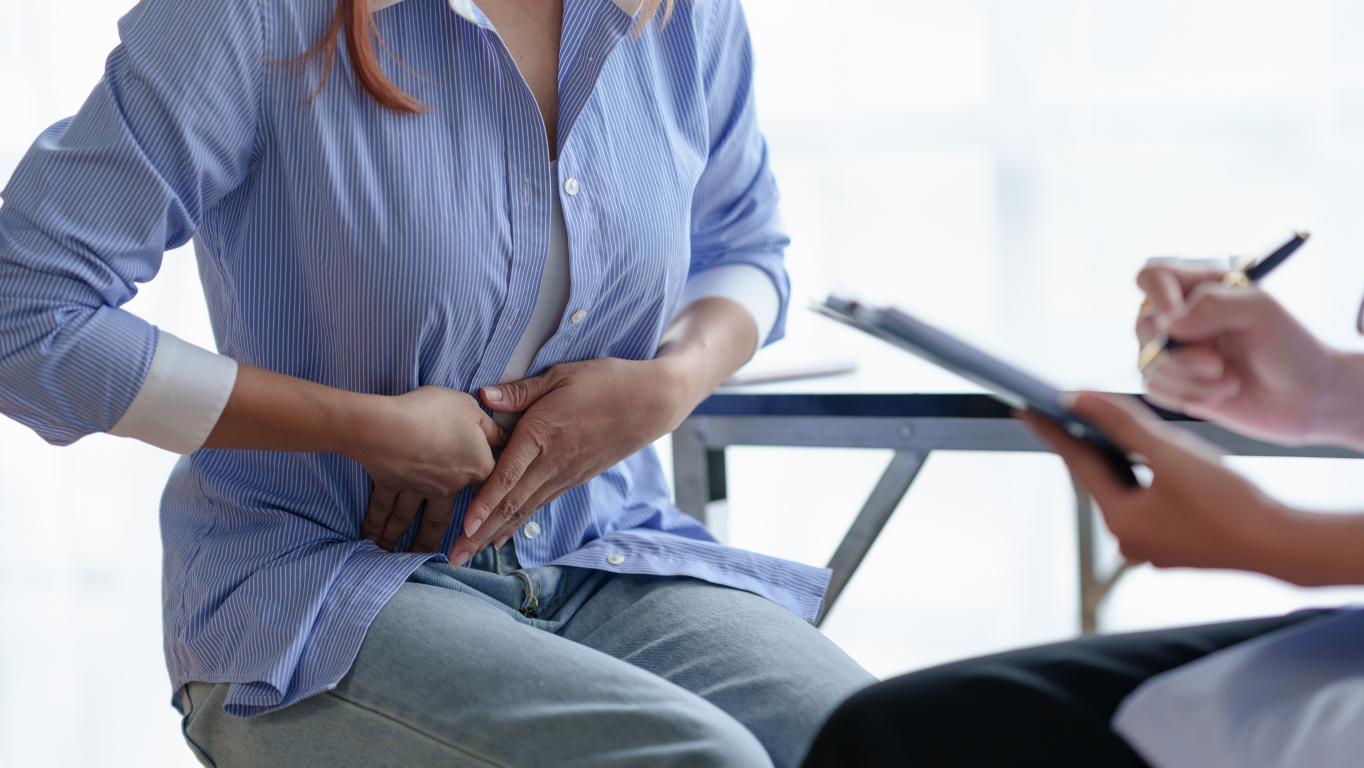
Table of ContentsIntroduction: Understanding Endometriosis BasicsIf you're reading this, chances are endometriosis has come into your life somehow—maybe you've been dealing with pain that's hard to explain, you've just had a diagnosis, or you're worried about someone close to you. It's normal to feel fed up, confused, or even angry, especially if you've been told "it's just bad periods" more than once. But finding out more is a really positive step, and it can help you feel a bit more in control. In the UK as we head into 2026, around 1 in 10 women and people assigned female at birth are thought to have endometriosis—that's an estimated 1.5 million people, according to Endometriosis UK and NHS figures. It's incredibly common, yet diagnosis often takes years, with many waiting 8–9 years on average for answers. The good news is that awareness is growing, research is moving forward, and there are more ways than ever to manage it, helping lots of people lead fuller lives. Endometriosis happens when tissue similar to the lining inside your womb grows in other places, like on your ovaries, fallopian tubes, the lining of your pelvis, or even your bowel or bladder. Every month, this tissue responds to your hormones—it builds up and then breaks down, just like in a normal period. But because it's outside the womb, the blood and tissue can't escape easily, leading to inflammation, pain, and sometimes scar tissue or adhesions that stick organs together. A simple way to picture it: in a normal period, the womb lining sheds and flows out. With endometriosis, similar tissue elsewhere sheds too, but gets trapped, irritating everything around it and causing swelling or scarring. Symptoms usually start in your teens or twenties, and for many they improve after menopause. It mainly affects people with a womb, but can rarely happen in others too. This guide is for you, pulling from trusted UK sources like the NHS, NICE guidelines, and Endometriosis UK, with info up to date as of late 2025. Whether you're spotting early signs, exploring treatments, or supporting someone, it's here to give clear, practical insights with understanding. Many people with endometriosis adapt well and find new ways to enjoy life—let's go through it together. 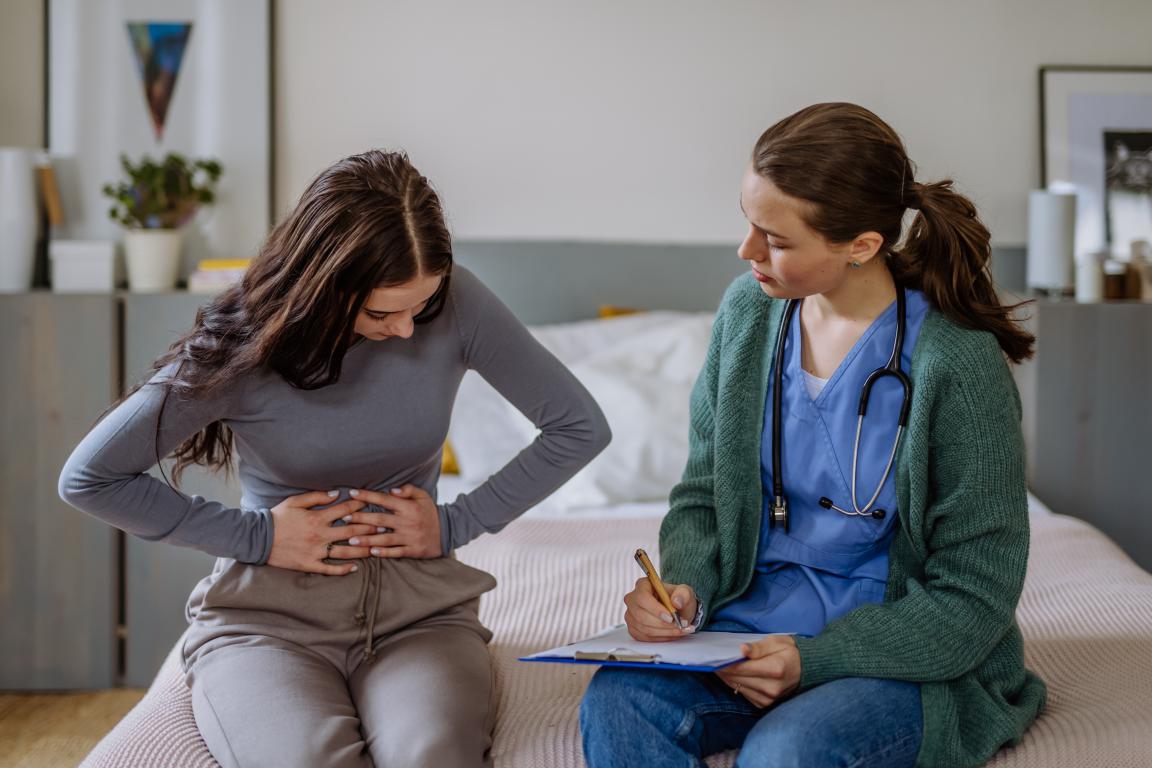
Common Types and Stages of EndometriosisEndometriosis isn't the same for everyone. It can grow in different places and to different depths, which affects how it feels and what treatments work best. Understanding the main types can make things feel less overwhelming and help when you talk to your doctor. Plus, knowing a bit more about why it happens or how it's spotted can give you clarity without making it feel too clinical. One important thing: the amount of tissue or "stage" doesn't always match how much pain you have. Someone with a small amount can feel awful, while someone with more might have milder symptoms. Location and inflammation play a big role, and factors like age, hormones, or family history can influence development. It's linked to estrogen levels and sometimes runs in families, though not all triggers are fully understood. Superficial EndometriosisThis is the most common type, where small patches grow on the surface of the pelvic lining or organs. These spots can be tiny, like seeds scattered around, but they still respond to your monthly hormones, which is why symptoms often sync with your cycle. It often causes:
Many people start noticing it in their 20s or 30s. Simple measures like heat packs or over-the-counter pain relief can help until you see a doctor. Deep Infiltrating EndometriosisThe tissue goes deeper (more than 5mm) into organs like the bowel, bladder, or supporting ligaments. This can make everyday activities tricky. It can lead to:
This type usually requires specialist care, potentially including scans like MRI or keyhole surgery. Endometriomas (Chocolate Cysts)Cysts on the ovaries filled with old blood, dark and thick—hence the name. Sizes vary, from small and unnoticed to larger ones pressing on nearby organs. Common effects:
Ultrasounds usually detect these clearly, and monitoring over time is common before considering removal. AdenomyosisOften occurs alongside endometriosis, where tissue grows into the womb muscle wall. This makes the uterus bulkier and more sensitive. It can cause:
Hormone coils or birth control pills may help lighten the flow and reduce discomfort. Rarer FormsEndometriosis can sometimes grow outside the pelvis, including:
These cases may require multiple specialists but are uncommon, so pelvic symptoms remain the main focus. Stages of EndometriosisStages range from I (minimal, a few spots) to IV (severe, widespread with cysts and adhesions). Stage doesn’t always reflect symptom severity. Surgeons often use a points system during surgery to determine stage, and many people don’t know their stage until then. Even stage I can cause significant pain if it affects a nerve. No matter the type, treatments like hormones or surgery can slow progression and ease symptoms, creating more good days. Lifestyle approaches, such as anti-inflammatory foods or gentle exercise, may help alongside medical care. Always discuss options with your doctor—you're not alone in figuring this out. 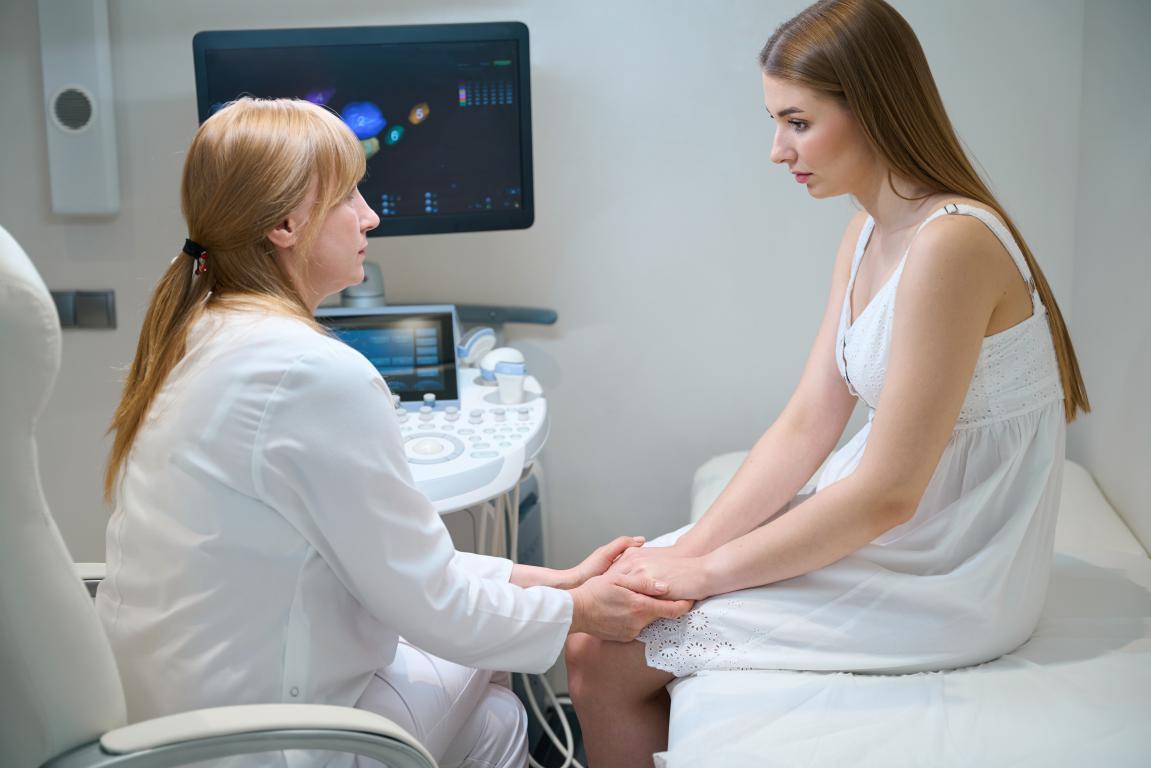
Signs and Symptoms: What to Watch ForSpotting endometriosis early isn't easy because symptoms creep in slowly and can look like other things, like heavy periods or IBS. But noticing patterns can get you help sooner, which makes managing it easier. Keeping a symptom diary—tracking when things hurt, what makes it worse, or how it ties to your cycle—can be a game-changer when chatting with your doctor, as it helps paint the full picture without relying on memory alone. Symptoms vary a lot—some have mild ones, others severe—and they don't always match how much tissue there is. Hormones play a big role here, since endo tissue reacts to estrogen like your uterine lining does, which is why symptoms often ramp up around periods or with hormonal shifts, like during ovulation or even perimenopause. Early SignsAt the start, things might be mild and come and go, often kicking in during your teens or 20s, but it's not unusual to overlook them as "just bad periods."
It's common to brush these off, but if they persist, note them down. Stuff like caffeine or lack of sleep can sometimes make them feel worse, so paying attention to those triggers early on might give you a head start. As It ProgressesSymptoms often get clearer and more consistent as time goes on, especially if untreated, and they might start interfering with work, relationships, or just enjoying life.
Flare-ups can be triggered by stress or cycle changes, or even things like diet—some folks notice dairy or gluten amps it up, though that's personal and worth experimenting with gently. More Advanced SymptomsIn tougher cases, especially if it's been going on for years, things can feel more relentless and spread out.
Unlike normal cramps that ease with ibuprofen, endometriosis pain often hangs around or needs stronger relief. If this sounds familiar, it's okay to feel worried—the NHS says recognising it opens up real support. Many delay years, but acting sooner helps, and there are communities online where people share what worked for them, making it feel less isolating. You're taking a good step just by reading up on this. 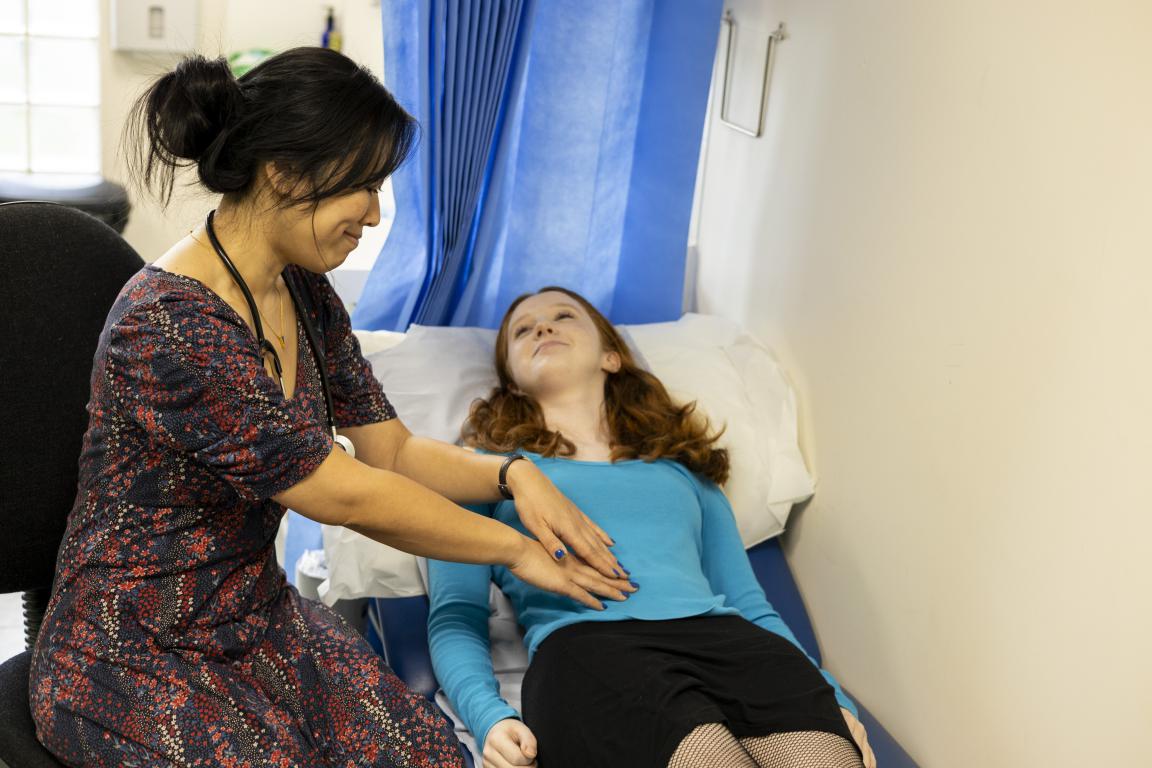
Causes and Risk FactorsNo one "gets" endometriosis on purpose—it's usually a mix of things, and we don't know the exact cause yet. Researchers are piecing it together through genetics, hormones, and how the body responds, but it's complex and likely different for everyone. Knowing the factors can help shake off any blame and show where changes might ease things, like managing hormone levels or avoiding certain environmental triggers. The main idea is retrograde menstruation, where some period blood flows back into the pelvis and plants tissue there. But lots have that without endometriosis, so other stuff like immune system glitches (where the body doesn't clear out those misplaced cells properly), high oestrogen levels, or even genetic changes play a part. Emerging theories look at things like stem cells getting misplaced or inflammation turning into a chronic loop. Risks that make it more likely:
Age-wise, it's often diagnosed in 20s to 40s, but symptoms can start earlier, even in teens, and it might hang around post-menopause in some cases. It affects around 1 in 10 women globally, so you're far from alone. The bright side is some things you can tweak, like using birth control to lighten periods or suppress cycles, which can lower estrogen and give relief. Things like regular exercise, a balanced diet, or even breastfeeding if that's in your future might offer some protection too. With research ramping up—new studies on biomarkers, blood tests, and non-invasive diagnostics are making waves—things are getting easier to spot and handle sooner. 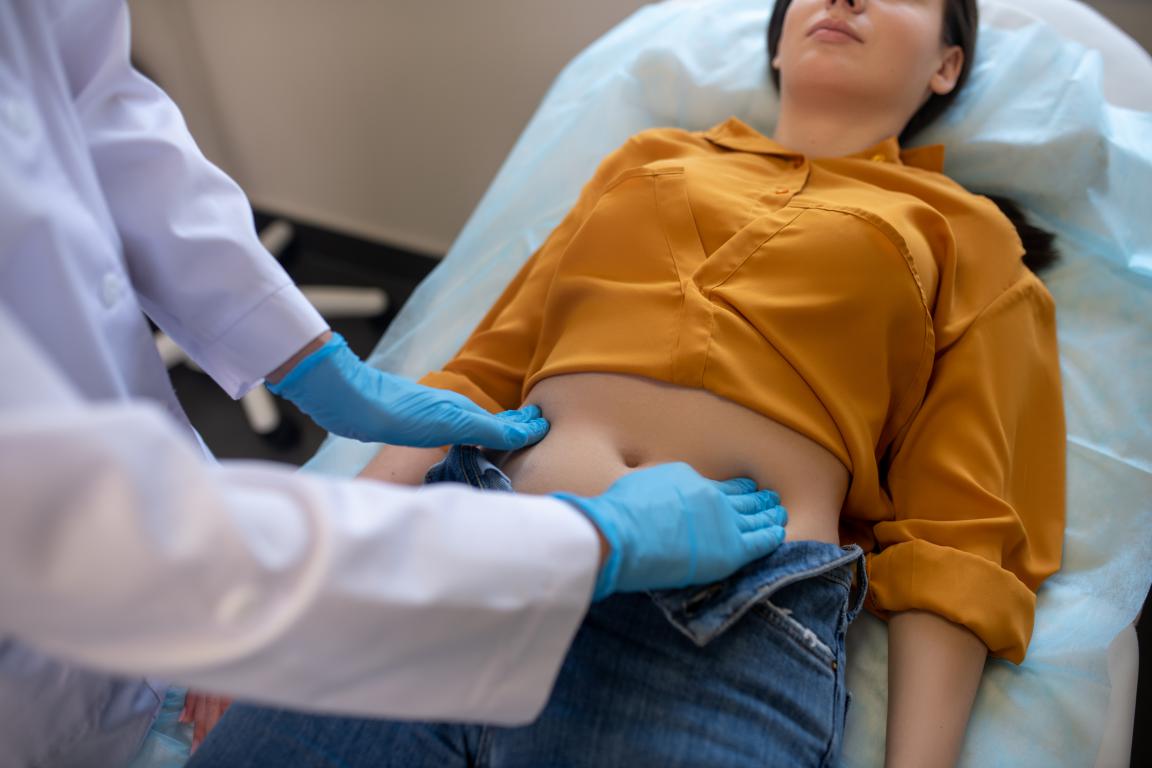
The Diagnosis Process: What Happens and Why It MattersGetting diagnosed with endometriosis can be a relief after years of wondering, but it might also bring worries about what's next—like how it changes daily life or future plans. It's a big step though, opening up proper help and ways to manage, often leading to fewer bad days and more control over symptoms. It usually starts with your GP. Tell them openly about your symptoms—when the pain happens (like tying it to your cycle), how it affects work, relationships, or just getting through the day, details on your periods, any family history. Being specific helps a lot; many find bringing a list or diary of symptoms makes the conversation easier. They might do a gentle tummy or internal check (you can say no if you're not comfortable), and suggest blood tests (though things like CA125 aren't reliable on their own) or initial scans. NICE guidelines (updated recently in 2024) say to suspect endometriosis based on your symptoms alone, without waiting for tests to confirm—that's a shift to get things moving faster and avoid dismissing it as "normal" period issues. Key checks:
If fertility's an issue or part of your concerns, there might be extra tests like checking if tubes are clear (hysteroscopy or similar). Why bother going through it? Early diagnosis means starting tailored plans sooner—like pain relief, hormones, or referring to a specialist endometriosis centre—which NICE pushes for certain cases to get expert input. It can cut long-term problems, like scarring or fertility impacts, and stop the cycle of trial-and-error meds that don't help. Many still wait years (average around 8 in the UK), often thinking it's normal or getting brushed off, but pushing for answers saves time and frustration. Things are improving with better awareness and guidelines, plus exciting research into non-invasive tests—like saliva or menstrual blood biomarkers—that could speed things up even more in the near future. 
Treatment and Management OptionsA diagnosis can feel heavy at first, but there are good options out there—based on NHS and NICE—to help with pain, fertility, and getting back to normal. It's tailored to you, with regular reviews to adjust as needed, because what works can change over time or with life stages like planning a family. No cure yet, but combos of treatments work well for most people, easing symptoms and improving quality of life. The goal is often to suppress hormones that feed the tissue, reduce inflammation, or remove problem spots directly. MedicationsOften start with pain relief or hormones, and you can try things empirically based on symptoms without waiting for full confirmation.
Talk side effects openly, like mood changes, hot flushes, or bone health concerns—add-back hormone therapy often helps balance those out. SurgeryFor tougher cases, if meds don't cut it, or to boost fertility chances.
Fertility HelpIf trying for a baby, treatments pause hormones and focus on assisted options.
Other Support
Helping someone? Listen without judgement, help track symptoms or come to appointments. With the right mix—and ongoing research bringing better tools—it becomes less of a big deal, letting you focus on the good stuff more. You're in control of what to try next. 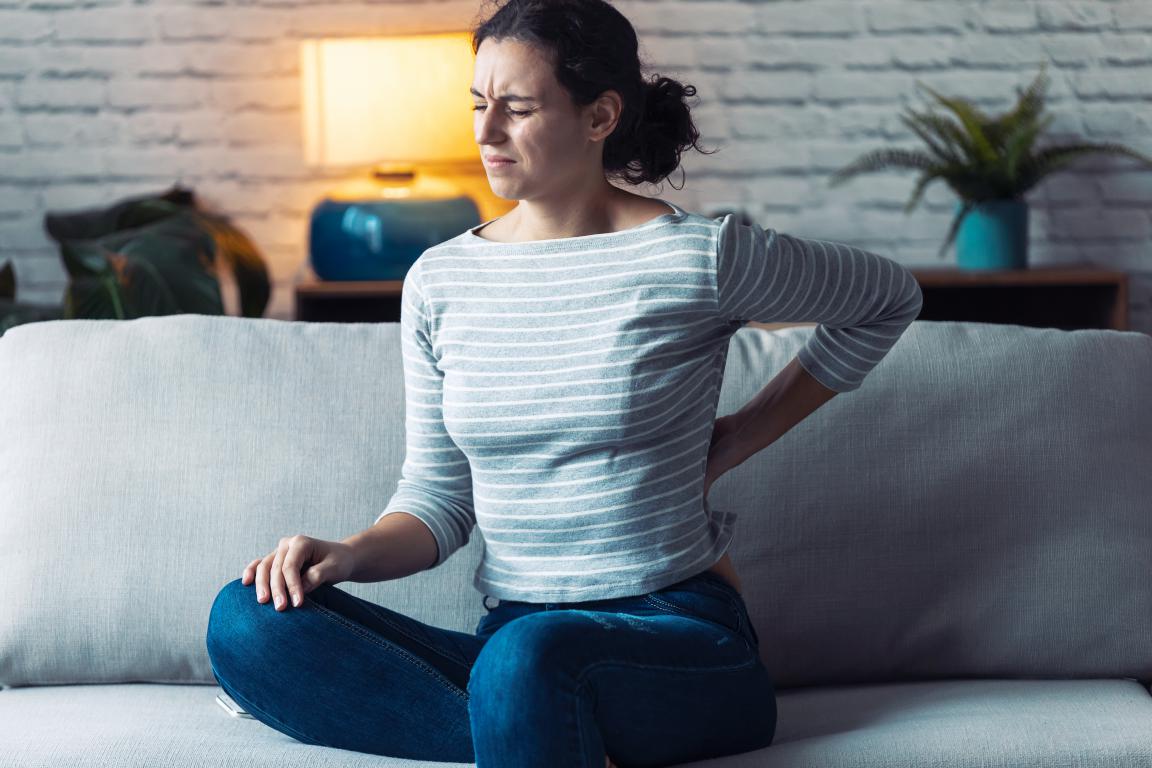
How to Live Well with Endometriosis: Practical Tips and StrategiesDay-to-day with endometriosis is about finding what works for you, so symptoms don't run the show. It's trial and error sometimes, but small changes can add up big time, giving you more predictable days and less surprise flares. Sharing with friends or family makes it less lonely—they might help with chores on tough days, just get why you need to cancel plans sometimes, or even join you in trying new routines for support. Handling Pain and Flares
Keeping Active
Eating Better
Emotional Stuff
Home and Everyday Tweaks
Many say it makes them stronger, more resilient, valuing good moments more, and focusing on self-compassion turns tough days into something manageable. With ongoing research into lifestyle tweaks and new apps/tools for tracking, more practical help is coming—you're building a toolkit that fits your life perfectly, one step at a time. 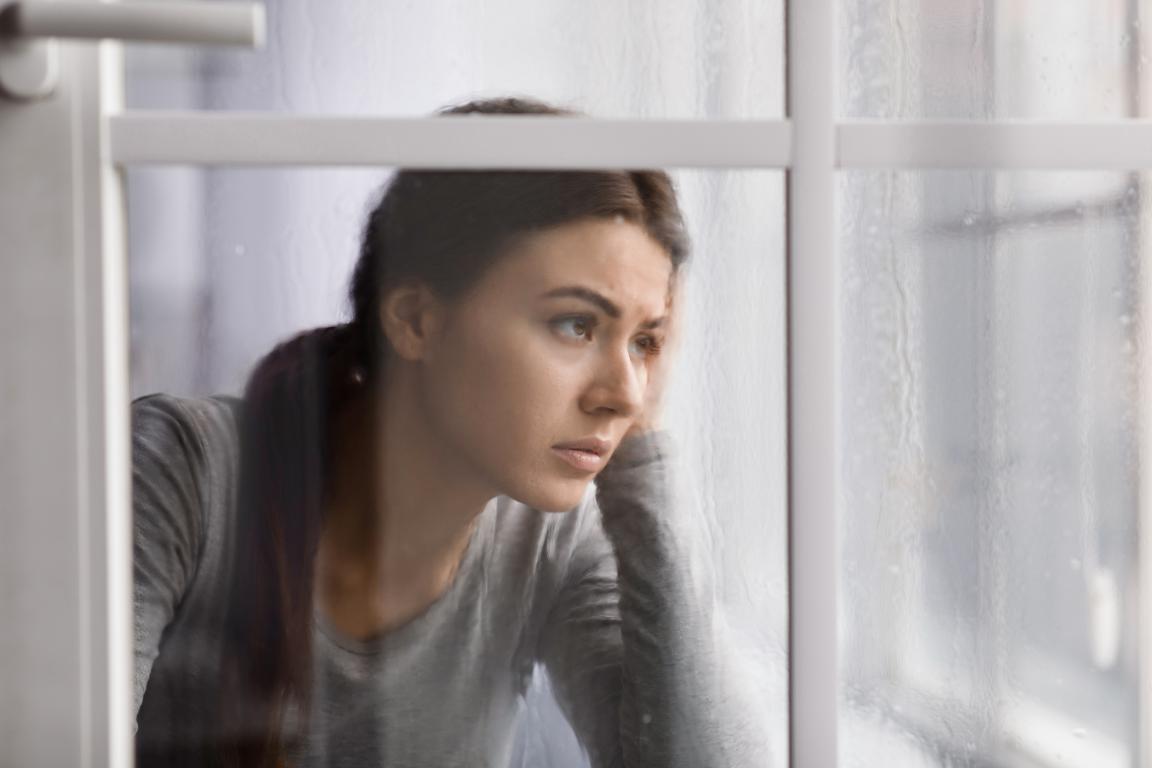
Myths and Facts About EndometriosisMyths about endometriosis are common and can add extra frustration or self-doubt when you're already dealing with a lot. Let's clear up some of the big ones with straightforward facts, based on what we know from the NHS, NICE, and endometriosis specialists. Myth: It's just really bad periods—you should just get over it or toughen up.Fact: Endometriosis is a proper medical condition where tissue similar to the womb lining grows outside the uterus, causing inflammation, scarring, and often severe pain that's nothing like normal cramps. NICE guidelines are clear: if period pain disrupts your life, it needs investigating properly, not brushing off. Many people have been told this for years, but it's not "normal" and your pain is valid. Myth: Pregnancy will fix it or cure endometriosis.Fact: Pregnancy can sometimes ease symptoms temporarily because high progesterone levels suppress the tissue and you pause periods for a while—but it's not a cure. For most, symptoms often return after birth or when cycles restart, sometimes even stronger. It's definitely not something to rely on as treatment. Myth: A hysterectomy will cure everything.Fact: Removing the womb (and sometimes ovaries) can help a lot for some people, especially if adenomyosis is involved or other options haven't worked—but it's not a guaranteed cure. If endometriosis tissue is elsewhere (like on the bowel, bladder, or distant sites), it can still cause problems afterwards. It's usually a last-resort option after careful discussion with specialists. Myth: Endometriosis is mainly a fertility problem.Fact: While it does affect fertility for around 30-50% of those with it (due to scarring or inflammation), it's so much more than that. It impacts daily life in big ways—chronic pain, heavy bleeding, fatigue, gut issues, painful sex, work absences, relationships, and mental health like anxiety or low mood from the constant battle. Myth: It's rare, or only affects certain types of women.Fact: It affects about 1 in 10 women and people with uteruses worldwide—that's millions in the UK alone. It can happen to anyone who menstruates, regardless of age (from teens to perimenopause), ethnicity, body type, or lifestyle. There's no one "type." Myth: If scans are clear, you don't have endometriosis.Fact: Standard ultrasounds can spot cysts or deeper issues, but superficial endometriosis often doesn't show up on any scan—laparoscopy is still the only way to confirm it definitively. A normal scan doesn't mean your symptoms aren't real or caused by endo. Knowing the facts can make it easier to talk to doctors, employers, or loved ones, and help you feel more confident pushing for the right support. Awareness is growing, and things are getting better. 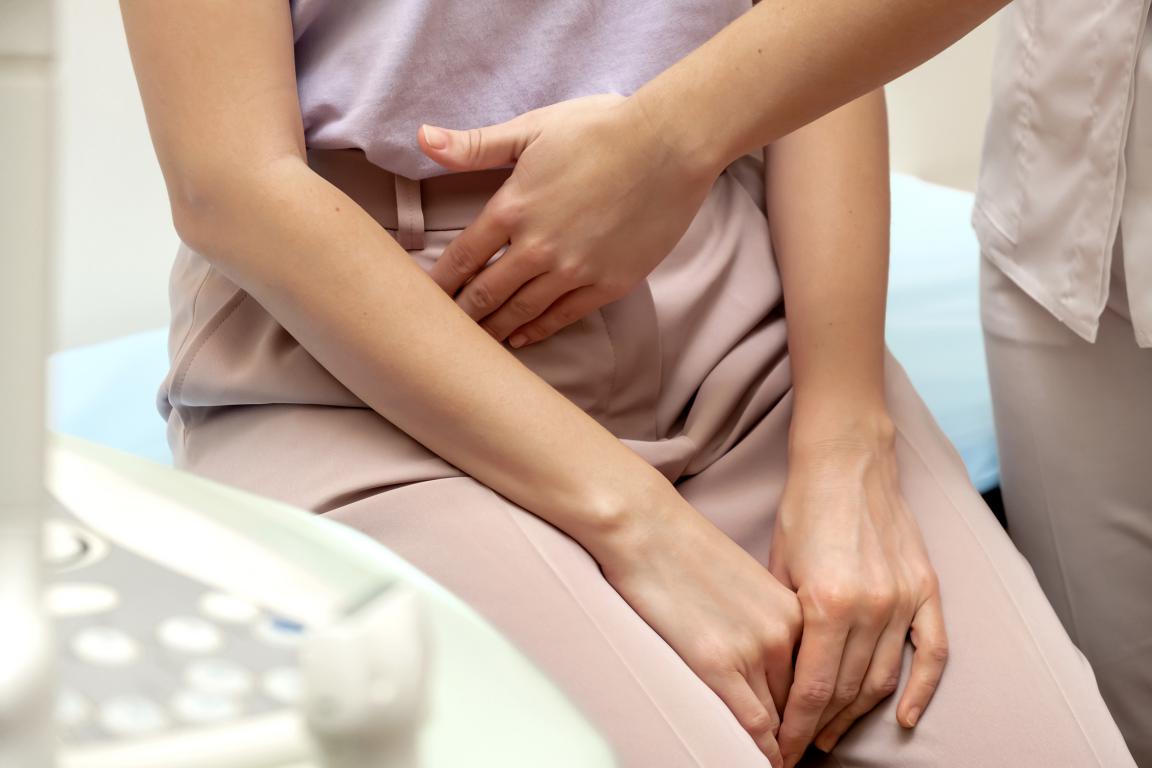
Frequently Asked QuestionsCan endometriosis be completely cured?No, there's no full cure because the tissue can grow back, and the exact cause isn't fixed by one treatment. But many people get really good long-term relief from hormones, surgery, or a mix of both—symptoms can be controlled well enough to live a normal life, and for some they ease naturally after menopause. How is endometriosis different from PCOS?PCOS (polycystic ovary syndrome) is mainly about hormone imbalances causing cysts on the ovaries, irregular periods, and things like excess hair or weight gain. Endometriosis is tissue growing outside the womb causing inflammation and pain. They can overlap sometimes, but treatments are different—PCOS often focuses on fertility or hormones, while endometriosis targets pain and tissue removal. Does quitting certain habits help if you're already diagnosed?Smoking can make inflammation worse and symptoms harder to manage, so stopping is a good idea. Managing stress through things like mindfulness or gentle exercise often helps reduce flares too—it's not a cure, but it supports whatever treatment you're on. What commonly triggers flare-ups?Flare-ups often tie in with your cycle (periods or ovulation), but stress, certain foods (like dairy or red meat for some), lack of sleep, or even cold weather can set them off. Keeping a simple tracker helps spot your personal triggers, then you can avoid or prepare for them with pain relief or rest. Does what I eat affect endometriosis?Yes, for quite a few people—an anti-inflammatory diet with lots of fruit, veg, fish, and nuts can ease pain and bloating. Cutting back on processed foods, caffeine, or alcohol helps some too. It's not the same for everyone, so try changes gradually and chat to a dietitian if bowel symptoms are bad. Is surgery always needed?Not at all—lots of people manage fine with painkillers, hormones like the pill or coil, or lifestyle tweaks. Surgery's more for when those don't work, symptoms are severe, or fertility's an issue. It's a personal choice—talk it through with your specialist. How can travel work with endometriosis?Plenty do it successfully with a bit of planning: pack your meds and heat pads, book seats with more room if needed, build in rest days, and check healthcare options at your destination. Tell travel insurance about your condition, and carry a doctor's note if you're on stronger pain relief. Does endometriosis strain the heart or other organs?It's rare for direct heart problems, but the ongoing inflammation can link to slightly higher risks over time, like with any chronic condition. It can affect bowel or bladder if tissue's there, causing pain or function issues—regular check-ups catch anything early. Can you get endometriosis without a family history?Absolutely—while it runs in families for some (higher risk if mum or sister has it), many get it without any relatives affected. Genetics play a part, but environment and hormones do too. How does endometriosis impact closeness in relationships?Pain during or after sex is common and can make intimacy tricky or off-putting. But open chats with your partner, trying different positions that put less pressure on sore spots, using lubricants, or planning around better days help a lot. Couples counselling or advice from Endometriosis UK supports the emotional side too. What's new in endometriosis care as we head into 2026?Things are looking more hopeful with some proper advances in the UK. In 2025, NICE approved two new daily oral GnRH antagonist pills for moderate to severe symptoms when other treatments haven't been enough: relugolix combination therapy (Ryeqo), which includes built-in add-back hormones to reduce side effects, and linzagolix (Yselty), taken with separate add-back therapy. Both are easier than injections, can be managed at home, and are rolling out on the NHS—great for long-term pain and bleeding control without as many menopause-like symptoms. Research into non-hormonal options like dichloroacetate is progressing in trials, targeting the way endometriosis cells behave to reduce pain without affecting hormones. Plus, the Women's Health Strategy is funding more specialist centres and better scans, meaning shorter waits for many. It's not overnight change, but it's real progress—ask your GP if any of these could suit you. 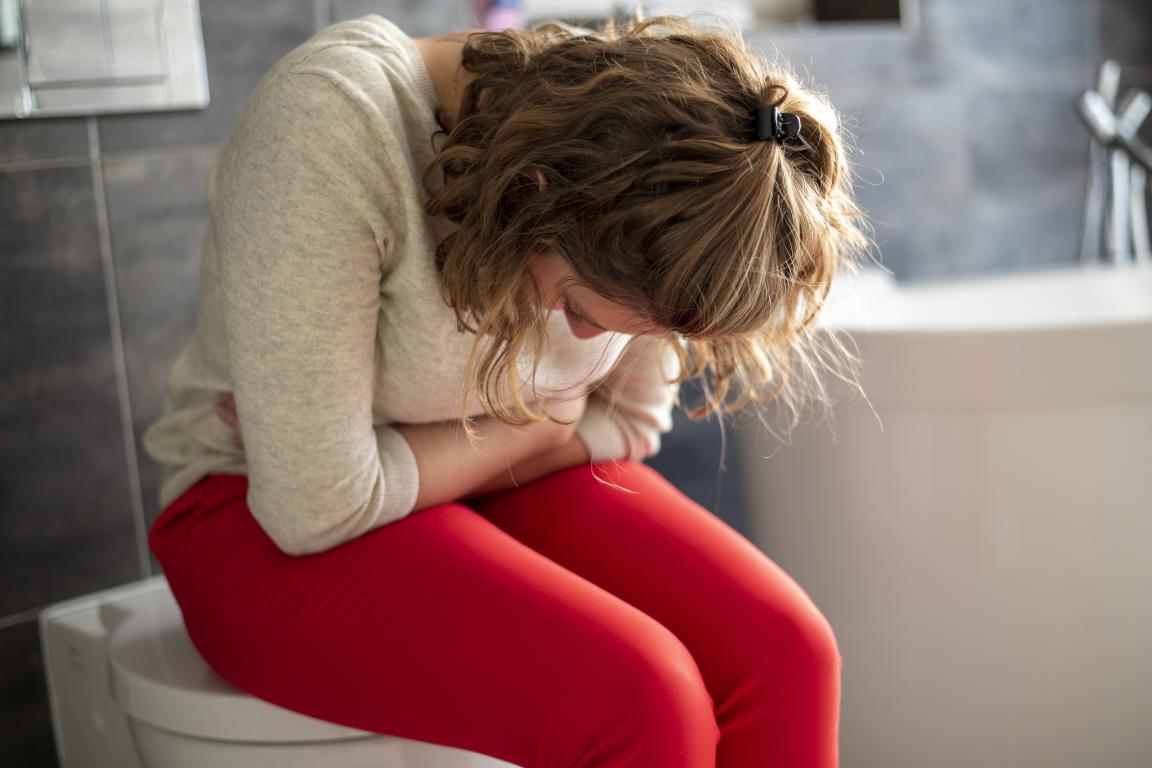
When to Seek Help and Key ResourcesKnowing when to get help can make all the difference—if pain, heavy periods, or other symptoms are messing with your work, studies, relationships, or just enjoying life, book a GP appointment soon. Don't wait thinking it'll sort itself—early checks lead to better management and less long-term impact. Urgent Signs – Call 111, 999, or Go to A&ESeek help right away if you have:
Everyday Support and Reliable ResourcesYour GP is the first port of call—they can refer to gynaecology or specialists. Keep notes on symptoms to make appointments more useful. For trusted help and a sense of community:
Lots of people find these a lifeline—connecting with others who get it reduces the isolation. Save the numbers now; reaching out really can turn things around for the better. Important DisclaimerThis guide provides general information about endometriosis based on current UK knowledge and resources as of December 2025. It is not a substitute for professional medical advice, diagnosis, or treatment. If you or someone you know is experiencing symptoms of endometriosis, please consult a qualified healthcare professional as soon as possible. In a crisis or emergency, contact emergency services on 999 or a trusted helpline immediately. The information here is intended to inform and support, not to replace personalised care from doctors, specialists, or other qualified professionals.
© 2024 The Card Project Uk Ltd
VAT: 453 2087 06
|